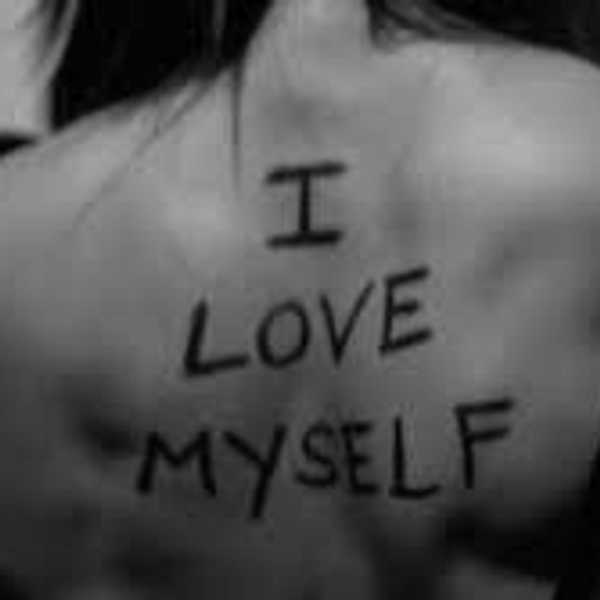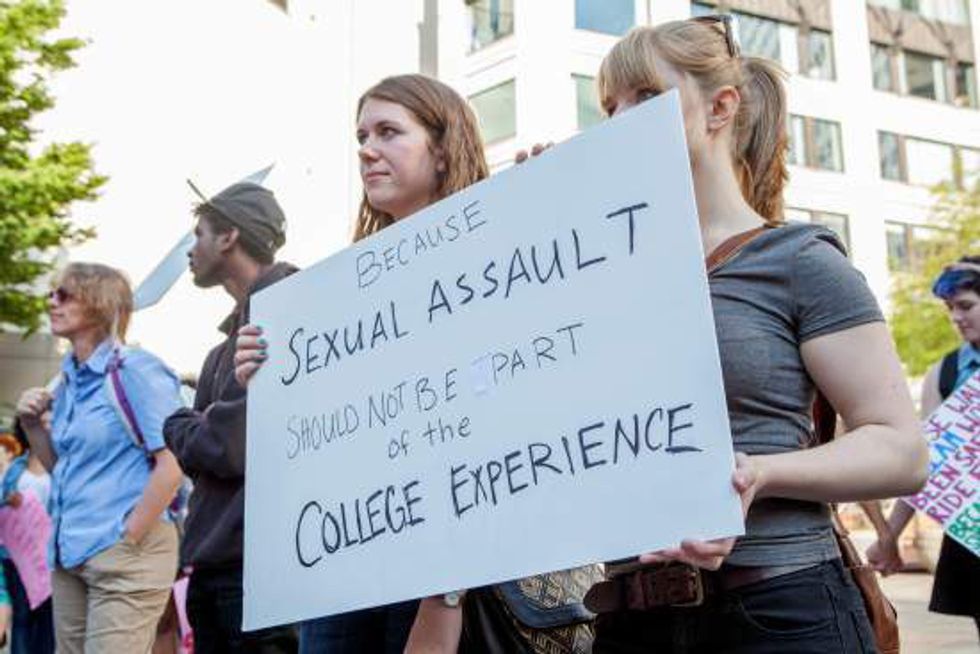Recently, I have been inspired by the documentary "The Hunting Ground," Lady Gaga's most recent video, "Til It Happens To You," and the Netflix documentary "It Happened Here" to write about rape culture. I encourage you all to check out all three of those moving pieces. I have been familiar with the term 'rape' since I was in middle school, but at that time, it was something that I pictured happening in dark alleyways, late at night. As I got older, we discussed it more often in health classes, but it was never something that we focused on for very long.
I've written this section multiple times, deciding how much I wanted to disclose. My personal experience with sexual assault was the summer before my sophomore year in high school. Innocent to everything else kids were doing my age, I refrained from sexual activity and being under the influence, because I had every intention of waiting until marriage. To this day, I have never fully come clean and reported the truth about what had happened that night, and I'm still hesitant to talk about it now. My assaulter was well known to many in the small town where I'm from, so I never came out publicly. The few that did know about what happened accused me of lying for attention and cyber-bullied me about it for months after the incident. This left me with more excuses to disregard what had happened; it left me silenced. After almost a year of counseling, I decided to move on and learn from what had happened. Now, as a collegiate woman, I firmly believe that silence is our only threat. Today, I'm going to be heard.
When my parents dropped me off on my first day at college, my mom wiped away a few tears from her cheek, and I waved to them as they drove off in slow motion. I thought to myself, this is it, you're finally on your own, here's the next chapter of your life. During my first few weeks, I got caught up in the college scene. What is the college scene like these days, exactly? For most kids, including myself, it's the first time being independent and away from home. Bad decisions come in an abundance, and second thoughts are disregarded. Looking in all directions at a party, you see people "hooking up" left and right. This could be kissing, touching, ect. (you can fill in the blank). Of all rape scenarios, this one disturbs me the most. I believe that, when a person is intoxicated, it is impossible for their partner to receive consent, but college culture ignores that. In fact, drunken hookups are typical, and most girls don't even know that is considered rape, they just accept it and move on, like it was just a mistake they made from being drunk.
Drunken hookups are only one excuse being given for rape crimes right now. Some even go as far as to ask a rape victim what they were wearing the night of their rape, like that is an excuse. On April 3, 2011, a group of women began the Slut Walk. In my opinion, this is one of the most ingenious ways of getting the word out about rape culture, because it was so shocking that it caught the eye of millions and became more than just a movement. Women march in attire that is provocative and revealing while carrying signs to justify that their outfit does not cause rape. And they are right, the only thing that causes rape is a rapist.
To me, the most shocking thing about rapes is that they are commonly committed by acquaintances or by someone you're already friends with or are familiar with in some way. I have researched this topic numerous times this week, and each time I read a new statistic or heard a new story, I would start to think about my kids going to college and feel physically sick and worried about something that would not exist for another 23-25 years.
Parents drop off their kids unaware of the statistics at the college, because no college reports that kind of information where it's noticeable unless searched for through public records. Here is a few statistics that you should know: one in five women are sexually assaulted each year on college campuses, and 88 percent of those women will never report their assault. I'd like to point out that this is not just a feminine issue; nine percent of rape victims are males, and they are even less likely to come forward. No one is truly safe.
So, I'm sure you're wondering how these on campus rapes keep reoccurring right about now. Like these DKE fraternity members show us as an example at Yale University, there is no punishment.
If every acceptance letter received stated the sexual assault rate on that campus, would you rethink sending your child to college? Private or public school, rape is still an epidemic being covered up by our education system. Most colleges in "The Hunting Ground" and "It Happened Here" show the true struggles of the men and women who did come forward. Basically, they were treated like a joke. In fact, most of the people accused of assault were never expelled or removed from sporting events (if they were athletes) until after the season or year was over. That means that if the victim was your son or daughter, there is a likely chance that they could come face-to-face with their rapist every day. You're literally forcing someone to relive the worst memory of their life over and over again.
Covering up these crimes makes the school look "more safe," which, in time, makes the school more income. A press conference about these issues is probably the worst thing a university president goes through, because they know it's losing them money, so, in turn, they lie repeatedly, saying "We take all these reports very seriously." Think about how many times you have heard that one on the news. Meanwhile, the victims are filing Title Nine Acts to get any kind of justice they can. The system is truly appalling; we're protecting the university instead of students to selfishly keep numbers rising. I'll give you a number that keeps rising: more than 100,000 college students will be assaulted this school year.
Sexual assault should not be part of the college experience. 'Victim' is a hard title to live with, because we don't want someone to look at us differently. It's hard enough to come out and say what has happened, let alone report it. But the best way of fighting this epidemic, on and off campuses, is to voice what happened. Share your story, advise others, connect with someone who can empathize with you. My wish is that all victims can become survivors and all survivors can become activists. For everyone that is not a victim of sexual assault or rape, you can still help out. I encourage you to talk about sexual assault for those who cannot or are too afraid to. Envy the girls who took a stand in these videos and aim to be more like them, because they're changing the future for our kids. Like I mentioned before, silence is our only threat, and one person CAN make a difference.
If you or someone you know is being sexually assaulted, please direct them to: http://www.peaceoverviolence.org/emergency/sexual-...






















